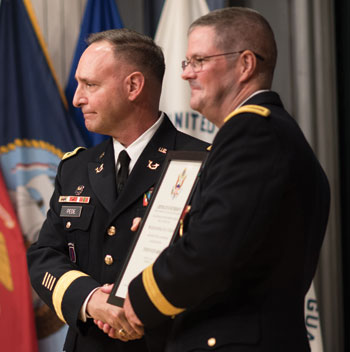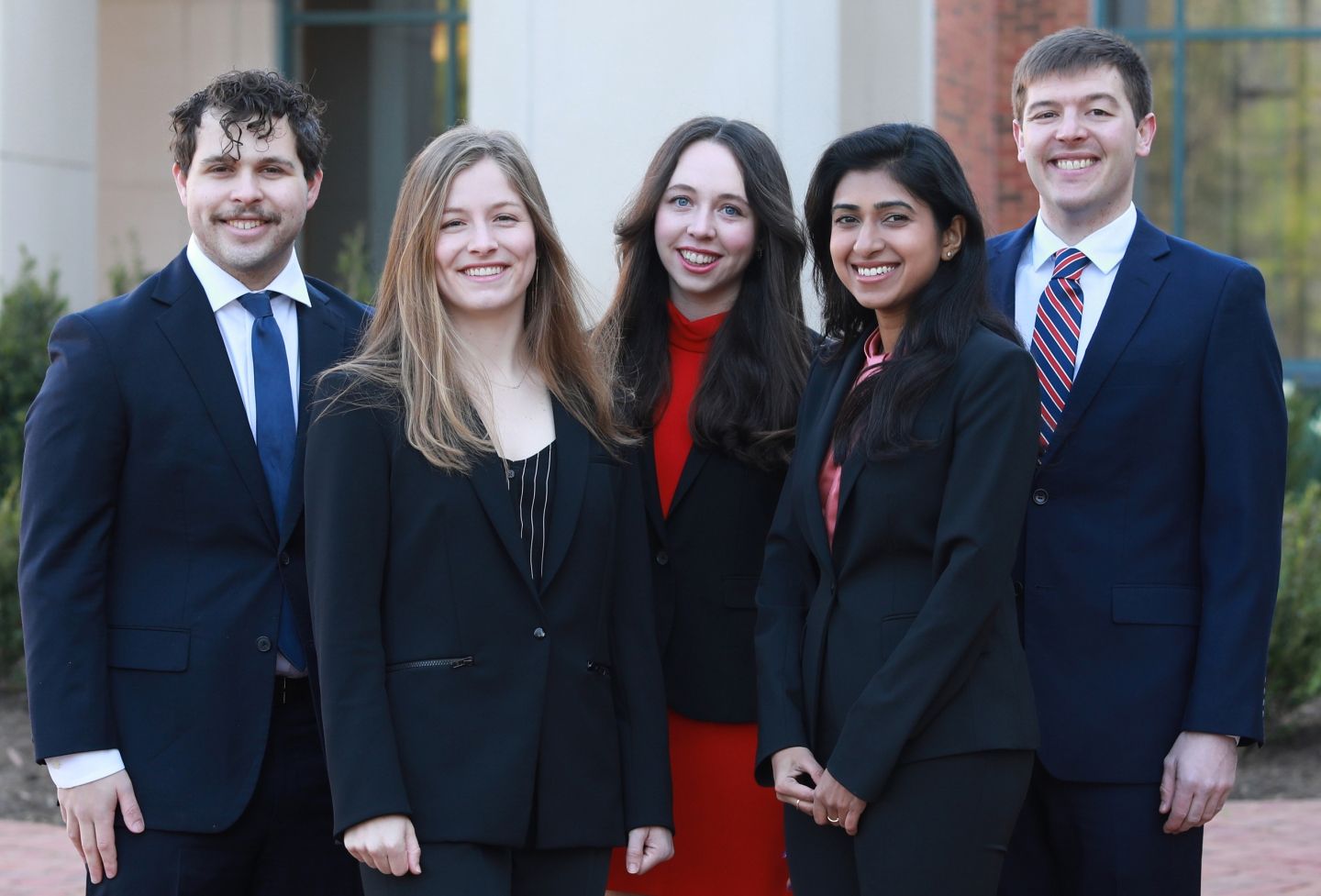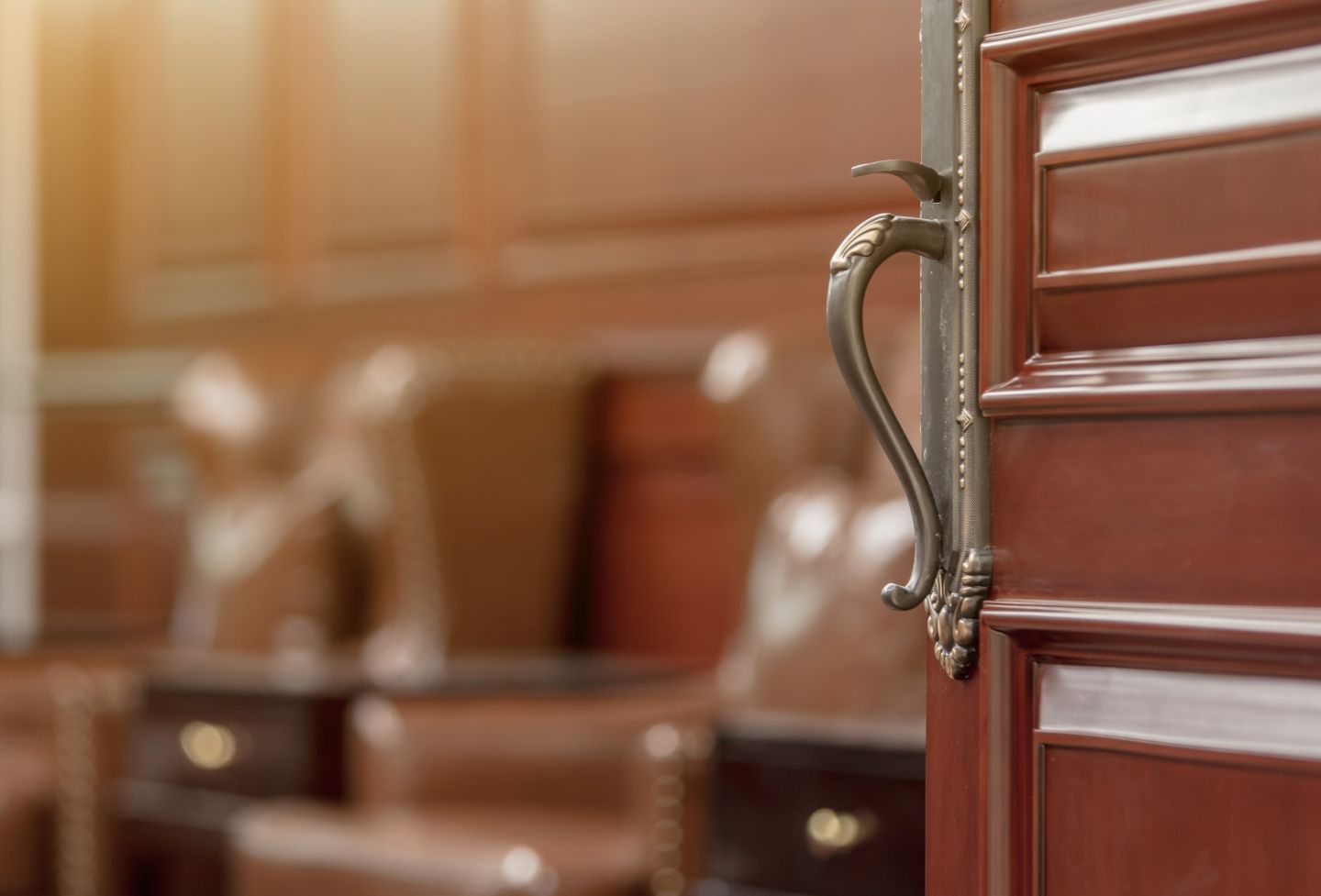In a ceremony at the Pentagon on July 26, Charles Pede ’87 was sworn in as the 40th judge advocate general of the Army. The ceremony also marked Pede’s promotion from brigadier general to lieutenant general.
Gen. Mark A. Milley, the Army’s chief of staff, hailed the JAG Corps as “fundamental to good order and discipline” and to maintaining a military “that is capable of taking on the enemies of our country and defending U.S. national interests.” Pede, in turn, urged his team, both soldiers and civilians, to “be ready for the next fight ... [to] set standards and enforce them — and for everyone in our corps to aspire to be the absolute best in everything they do.”
A few weeks into his new job, Pede still looks back with a mixture of pride and disbelief. “It was very special, nothing you ever plan for or aspire for,” he said. “If you’re a serving soldier, you just want to serve and take advantage of the opportunities the Army gives you to do the Army’s mission.”

For him, the ceremony also brought back memories of his father, Brig. Gen. August Pede, a 30-year Army veteran, and two other ceremonies. In 1984, at then-Lt. Charles Pede’s ROTC commissioning ceremony just before his graduation from UVA, his father delivered remarks in which he laid out rules for soldiers that Pede has kept in mind throughout his career: challenge convention, lead by example, embrace your moral compass, and — perhaps most important — put the men and women under your command first. Pede reiterated those themes when he followed in his father’s footsteps by delivering the ROTC commissioning ceremony at UVA last year.
The Judge Advocate General’s Corps, formed on July 29, 1775, just 26 days after Gen. George Washington took command of the Continental Army, is composed of lawyers and paralegals. All five branches of the service have their own JAG Corps, though the Army’s is the largest. They provide every form of legal representation imaginable to uniformed personnel, from separation agreements to writing wills to debt collection and employment matters. They also handle criminal and disciplinary matters such as prosecuting and defending soldiers at courts martial, as well as litigating government and defense appeals.
Perhaps even more important, the JAG Corps advises the Army on the law of armed conflict. That means advising commanders and soldiers on how to conduct operations in a lawful manner, by minimizing casualties, focusing on lawful targets, and avoiding damage to civilians and civilian property. “That’s the pride of the American army,” Pede said, “that we’re a law-abiding army.”
“We’re in a legally intensive world — and such a world benefits from well-trained and prepared lawyers and paralegals.”
The Army has nearly 1,900 lawyers on active duty around the world, as well as 1,600 paralegals and 99 legal administrators. There are also approximately 650 civilian attorneys, and another 2,700 attorneys in the Reserve and National Guard.
At Pede’s promotion, Gen. Milley reminded his audience of a point that Pede, an Army brat, already knew. Recognizing the sacrifices that spouses and children make for the service members’ careers, Milley reiterated, as Pede puts it, that “the family owns the [promotion] stars, not you — because they make it possible.”
Pede grew up on bases around the country. Looking back on his experiences in law school, Pede warmly recalled several of his professors, including former dean Emerson Spies, Steven Saltzburg (now at George Washington University) and Graham Lilly ’63. Lilly’s civil procedure hornbook, in fact, still sits on Pede’s desk. Reminded that the JAG students are traditionally a force in the North Grounds Softball League, Pede, a former law school softball player himself, chuckled. “They’re a little too competitive, I suppose.”
His Army legal career has taken him all over the world, to Germany, Somalia, Turkey, Afghanistan, Iraq and elsewhere — wherever members of the military require legal services. He has also commanded the Army’s Legal Services Agency and served as chief judge of the Army’s Court of Criminal Appeals at Fort Belvoir, Virginia.
In March 2015, he returned to Charlottesville, assuming command of the Judge Advocate General’s Legal Center and School, next to the Law School. His most recent assignment before his current assignment was as assistant judge advocate general for military law and operations, supervising a staff of more than 70 lawyers inside the Pentagon who support the secretary of the Army.
Pede is confident that he inherits a JAG Corps in good shape. “Our corps is extraordinarily healthy,” he said. “But the world is a constantly changing, dynamic place, and new threats emerge.”
Although the Army’s focus has been on counterterrorism for the past several years, Pede wants to ensure that it is also prepared if a “full up” war breaks out.
“Are we ready?” he asked. “The answer is, in short, yes. But I want to make sure that we’re more than ready.”
Founded in 1819, the University of Virginia School of Law is the second-oldest continuously operating law school in the nation. Consistently ranked among the top law schools, Virginia is a world-renowned training ground for distinguished lawyers and public servants, instilling in them a commitment to leadership, integrity and community service.


